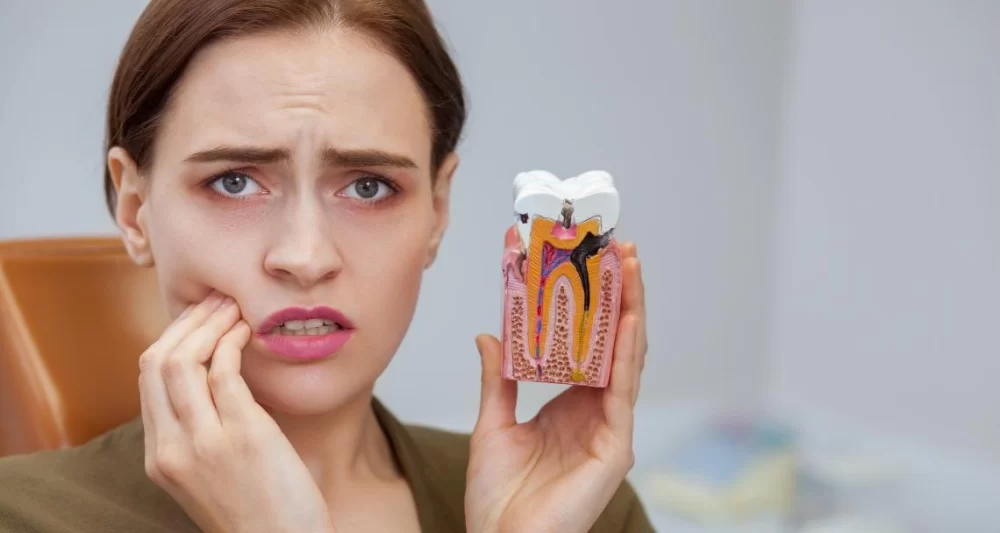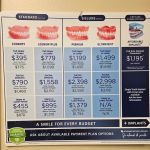
How to Deal with Dental Emergencies While on Vacation
Vacations are meant to be a time of relaxation and enjoyment, but sometimes unexpected situations can arise that threaten to derail your plans. One of the last things anyone wants while traveling is to experience a dental emergency. Whether it's a sudden toothache, a chipped tooth, or a lost filling, dental issues can cause significant discomfort and anxiety when you're far from home. However, there are steps you can take to manage dental emergencies during your vacation so you can enjoy your trip without too much distress. Below, we’ll explore what you need to know about handling dental problems on the go.
Understanding Common Dental Emergencies on Vacation
Dental emergencies can happen at any time, and when you're traveling, they can feel even more overwhelming due to unfamiliar surroundings. Common dental emergencies during vacations include:
- Toothaches: Often caused by cavities or dental infections, toothaches can become especially painful when traveling. Eating hot or cold foods may intensify the pain.
- Chipped or Broken Teeth: Accidents happen, and sometimes while eating or engaging in activities, you might chip or break a tooth. This can be painful, especially if the tooth has sharp edges that irritate the gums.
- Lost Fillings or Crowns: If you’ve had dental work done in the past, a filling or crown may fall out unexpectedly while you’re away from home, exposing sensitive tooth surfaces.
- Lost or Broken Dentures: If you wear dentures, these can break or get lost during travel, leaving you without your essential prosthetics.
- Swollen or Bleeding Gums: Sometimes, gum issues can flare up during a trip due to poor oral hygiene, stress, or a change in diet. This can lead to discomfort and bleeding gums.
What to Do in Case of a Dental Emergency While Traveling
Knowing how to react to a dental emergency while traveling can help alleviate discomfort and prevent further damage. Here are practical steps to take in different situations:
1. Toothaches
If you develop a severe toothache, the first thing you should do is try to rinse your mouth with warm water to remove any debris. Over-the-counter pain relievers, like ibuprofen, can help manage pain temporarily. Avoid very hot or cold foods that might aggravate the pain. If the pain persists, find a local dentist as soon as possible, as the problem could be an infection or a deep cavity requiring professional care.
2. Chipped or Broken Teeth
When a tooth chips or breaks, try to save any pieces of the tooth if possible. Rinse your mouth with warm water to cleanse the area and apply a cold compress to reduce swelling. Avoid chewing on the damaged tooth. In the meantime, you can apply dental wax or temporary filling material to cover any sharp edges and prevent further damage. Visit a dentist as soon as you can, especially if the break exposes the pulp or nerve of the tooth, which may require a root canal.
3. Lost Fillings or Crowns
If you lose a filling or crown, it’s important to keep the area clean. You can try to temporarily reattach the filling or crown using dental cement, which can be purchased at most pharmacies. Avoid eating on that side of your mouth until you can see a dentist. If the exposed area is painful, you can use a desensitizing gel available at most drugstores to soothe the discomfort until you can receive proper treatment.
4. Lost or Broken Dentures
If your dentures break or get lost while traveling, you’ll need to make do until you can see a professional. Avoid using any adhesive or glue to repair the denture yourself, as this can cause further damage. If the dentures are cracked or broken, contact a local dentist or dental lab for an emergency repair. If your dentures are lost, make an appointment with a local dentist for a replacement.
5. Swollen or Bleeding Gums
Gum issues such as bleeding or swelling can sometimes be caused by poor oral hygiene or a reaction to something you ate. Rinse your mouth with warm saltwater to help reduce inflammation and fight infection. If the swelling doesn’t go down, or if you’re experiencing pain, it’s important to see a dentist. In some cases, gum issues can lead to serious infections that require prompt attention.
How to Find a Dentist While Traveling
Finding a reliable dentist while traveling might seem daunting, but there are several resources that can help you in an emergency:
- Travel Insurance: If you have travel insurance, check with your provider to see if they offer emergency dental coverage or can assist in finding a local dentist.
- Hotel or Resort Concierge: Most hotels and resorts have local contacts and can help you find a nearby dental office. They may even assist with making an appointment.
- Online Directories: There are online platforms that list dentists by location and specialty. Websites like the American Dental Association’s (ADA) find-a-dentist tool can help you locate a dentist in an emergency.
- Ask Locals: If you’re in a smaller town or less touristy area, asking local residents for recommendations can lead you to trusted healthcare professionals.
Preventing Dental Issues While Traveling
The best way to handle dental emergencies is to avoid them altogether. Here are a few tips to prevent oral health problems while on vacation:
- Maintain Regular Oral Hygiene: Brush your teeth at least twice a day and floss daily, even while on vacation. Carry travel-sized toothbrushes and toothpaste to make this easier.
- Watch Your Diet: Avoid foods and drinks that are too hard, sticky, or sugary, as they can increase the risk of tooth damage or cavities.
- Stay Hydrated: Drink plenty of water throughout the day to maintain saliva flow and prevent dry mouth, which can contribute to dental issues.
- Use a Travel-Friendly Dental Kit: Pack a dental kit that includes toothpaste, toothbrush, floss, and mouthwash, especially if you’re traveling internationally where dental products might not be as accessible.
Conclusion: Stay Prepared for Dental Emergencies
Dental emergencies can happen when you least expect them, and they can be more stressful while you’re away from home. By staying informed, prepared, and proactive about your dental care, you can handle any dental issue that arises during your vacation. Remember to always keep your dentist’s contact information handy and seek professional help when necessary to ensure that your trip remains enjoyable and stress-free.







 Dr. Dental: Dentistry & Braces4.0 (459 review)
Dr. Dental: Dentistry & Braces4.0 (459 review) Dr. Bruce King DDS4.0 (112 review)
Dr. Bruce King DDS4.0 (112 review) OMS Nashville - Dental Implants & Oral Surgery4.0 (245 review)
OMS Nashville - Dental Implants & Oral Surgery4.0 (245 review) Pratte John DDS4.0 (15 review)
Pratte John DDS4.0 (15 review) Affordable Dentures & Implants4.0 (757 review)
Affordable Dentures & Implants4.0 (757 review) Willamette Dental Group - Puyallup4.0 (117 review)
Willamette Dental Group - Puyallup4.0 (117 review) The Importance of Oral Health Education During Pregnancy for a Healthy Pregnancy
The Importance of Oral Health Education During Pregnancy for a Healthy Pregnancy Best Tips for Brushing Your Teeth Properly for Healthy Gums: Essential Techniques for Oral Health
Best Tips for Brushing Your Teeth Properly for Healthy Gums: Essential Techniques for Oral Health Why Skipping Dental Checkups Can Lead to Bigger Oral Health Problems
Why Skipping Dental Checkups Can Lead to Bigger Oral Health Problems Advantages of Porcelain Dental Restorations
Advantages of Porcelain Dental Restorations How Can Diabetes Cause Tooth and Gum Problems? Preventing and Managing Oral Health Issues
How Can Diabetes Cause Tooth and Gum Problems? Preventing and Managing Oral Health Issues Healthy Habits for Promoting Good Oral Health and Hygiene: Tips for a Healthy Smile
Healthy Habits for Promoting Good Oral Health and Hygiene: Tips for a Healthy Smile